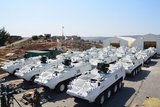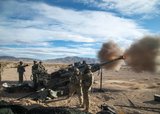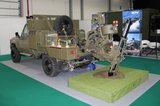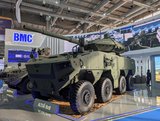USMC looks ahead to new rocket system
The USMC is keen to improve the lethality and safety of its troops as the Marine Corps Systems Command (MCSC) has released a solicitation to procure a next-generation, shoulder-fired rocket system.
The US Army has published in July an RFP to purchase the M72 Light Assault Weapon Fire from Enclosure (LAW FFE) munition on behalf of the MCSC. The Marine Corps Programme Manager, Ammunition (PM Ammo) expects to field the system in the FY2022.
An MCSC spokesperson told Shephard that the M72 LAW FFE will be used throughout the Marine Corps, although no further details are available about the number of systems
Already have an account? Log in
Want to keep reading this article?
More from Land Warfare
-
![British Army’s Project Stokes 120mm mortar bids due in March 2026]()
British Army’s Project Stokes 120mm mortar bids due in March 2026
Project Stokes could see a new 120mm mortar capability enter British service, with domestic production and international partnerships central to competing bids.
-
![World Defense Show 2026: Large vehicles and counter-drone systems take the limelight]()
World Defense Show 2026: Large vehicles and counter-drone systems take the limelight
Visitors who attended the first World Defense Show four years ago continue to speak of the difficulties they faced with poor facilities and power problems. This year’s event emphasised its status as one of the major defence expositions and as a place where regional players and those less welcome at other shows could take centre stage.
-
![MKJ Warrior Series — The Nett Warrior Qualified Connector for Today’s Soldier Systems]()
MKJ Warrior Series — The Nett Warrior Qualified Connector for Today’s Soldier Systems
ITT Cannon’s MKJ Warrior connectors are designed for the harshest environments, delivering mission critical comms, navigation and USB data/power.























